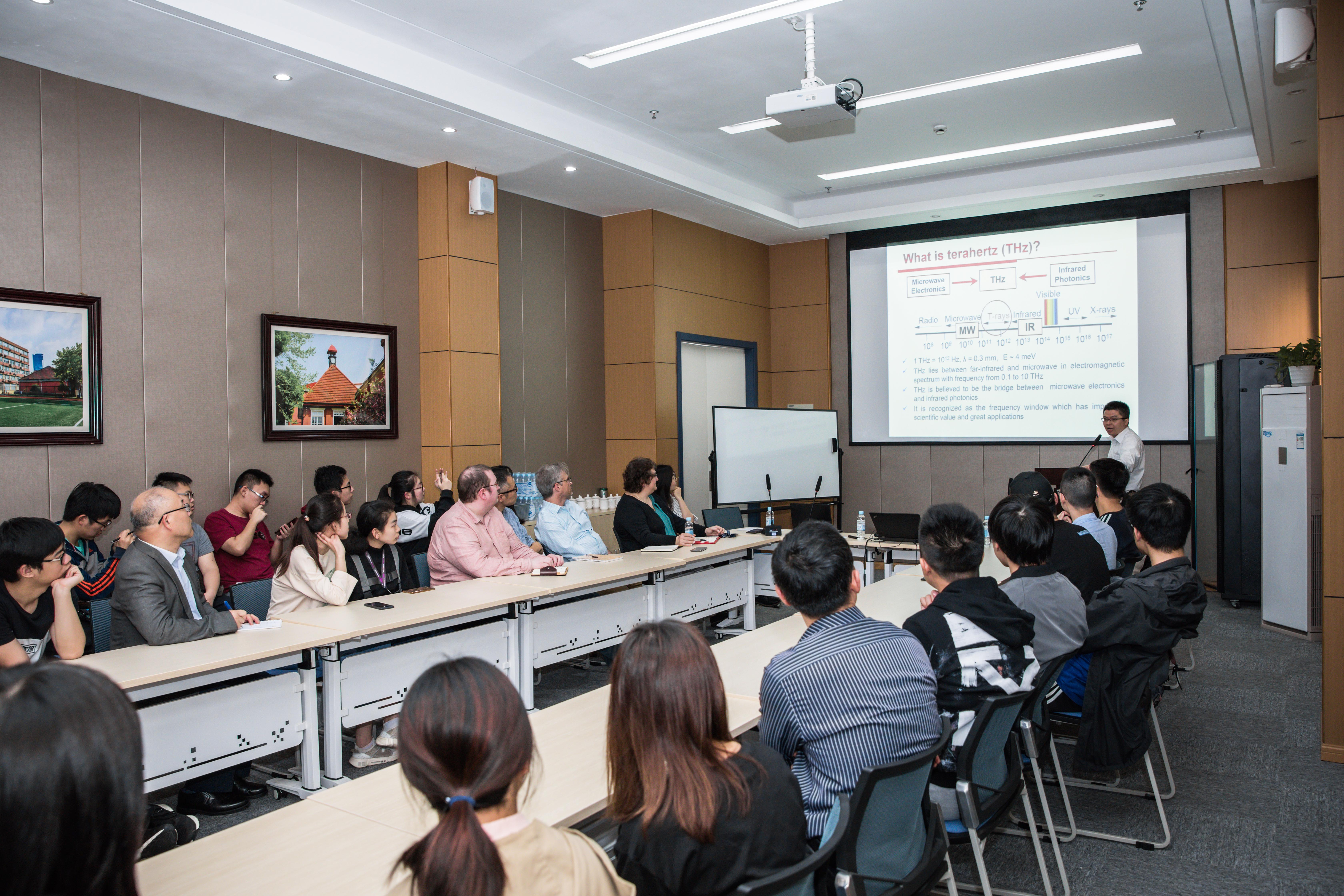On April 19th, Professor Zhu Yiming, School of Optical-Electrical and Computer Engineering, University of Shanghai for Science and Technology, delivered a guest lecture with the entitle of “Technology of Changing the Future – Terahertz Technology” in the conference room of SBC teaching building. Professor Laura Bishop, Principal of SBC, XU Lin, Associate Dean of Administration of SBC, and nearly 100 teachers and students have attended.
XU Lin, extended a warm welcome to Professor Zhu Yiming on behalf of the College and gave a opening remark.
In the lecture, Professor Zhu Yiming introduced the definition of the wave and terahertz technology with interesting examples at first. As one of the Leading researchers in terahertz technology in China, Professor Zhu Yiming also shared his research experiences and the uses of terahertz technology in real life. With its development in the past decades, terahertz technology remains highly needed in military, scientific research, medicine or social construction in the future as evidenced by the first image of the black hole.
Professor Zhu Yiming noted that the terahertz technology would be a popular program in universities in the next few years, and advanced facilities in USST can absorb more professionals in the future. “The terahertz research equipments and theoretical reserves currently owned by USST are at the forefront of China. I hope that students could make full use of the resources provided by the college and proactively participate in the construction of national science and technology innovation.” Professor Zhu Yiming said.
In the questions and answers part, Professor Zhu Yiming answered the students’ questions one by one and praised the sensitivity and research literacy of them.
“I enjoyed this lecture very much. Even they don’t understand enough professional knowledges, their enthusiasm for new things is much higher than my imagination. I hope that the students will always hold their own enthusiasm for science technology to build a bright future.” Professor Zhu Yiming said.






